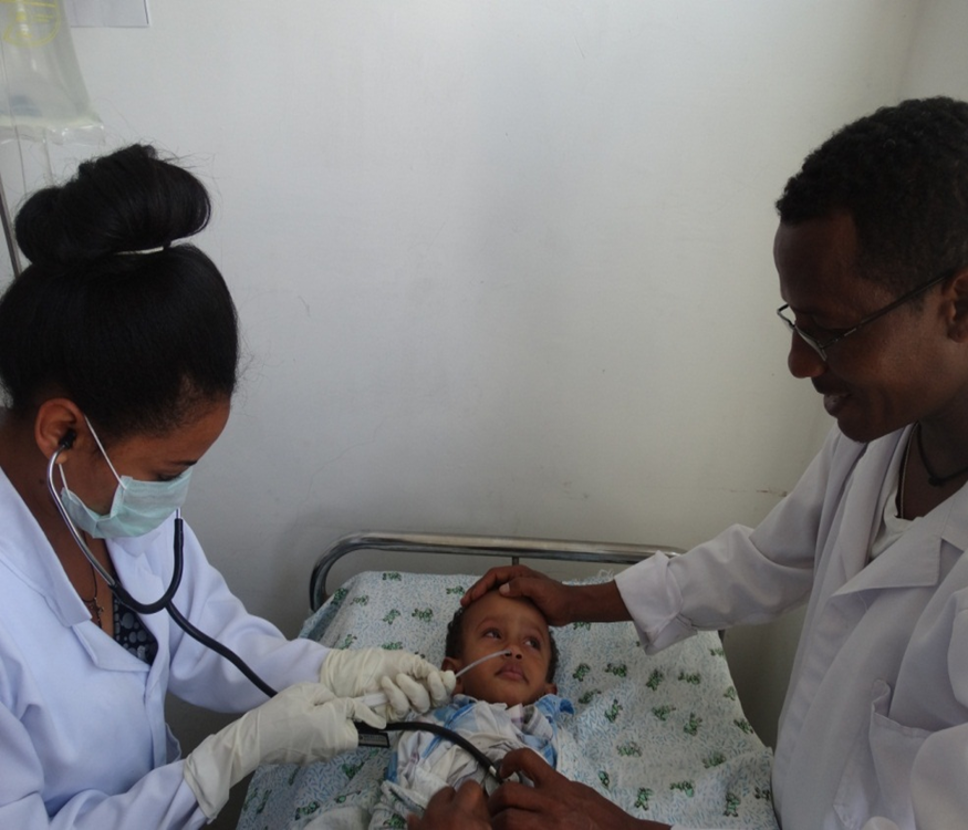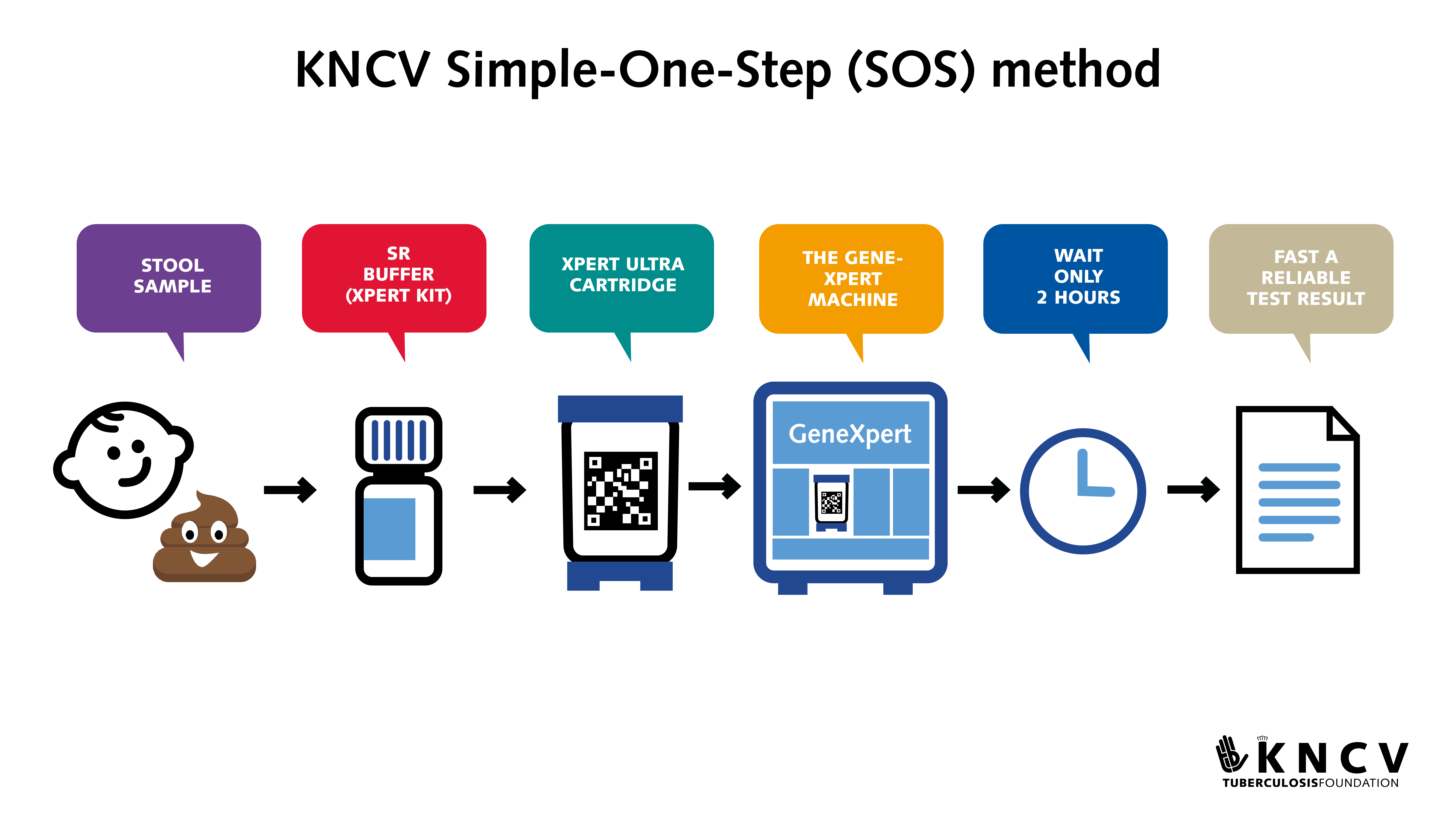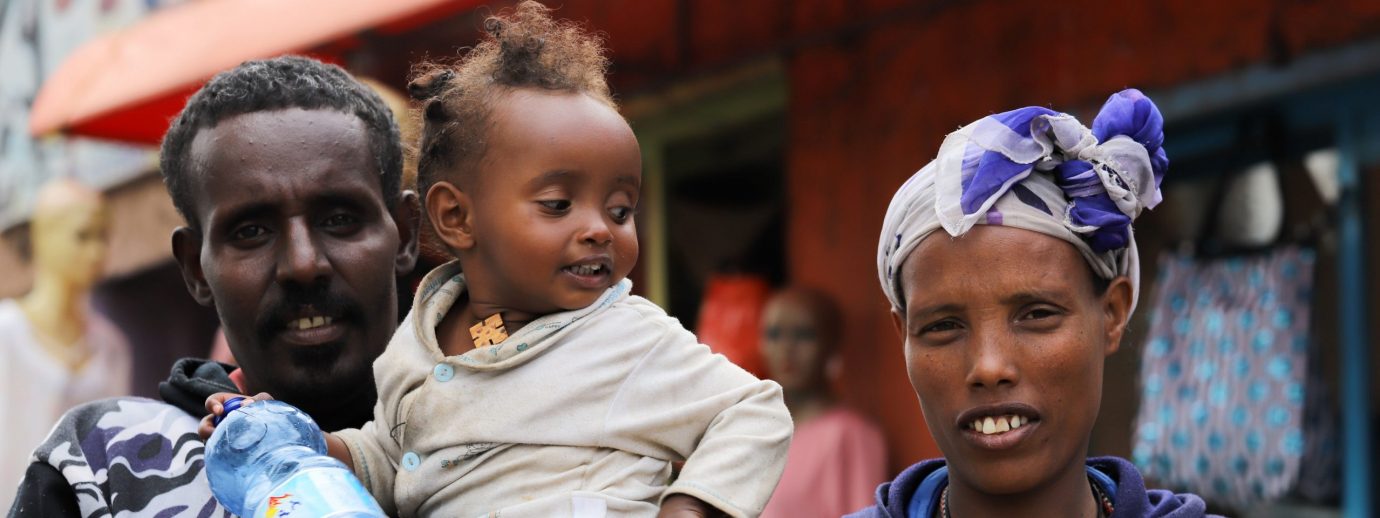Tuberculosis (TB) kills nearly 700 children every day, and most of these deaths occur before their fifth birthday. There is a proven treatment to prevent most of these deaths but diagnosing TB in children is difficult because the body specimens used to test its presence are not easily obtainable.
 Lack of child-friendly diagnostic tools is one of the key barriers to detecting and treating TB in young children. Until recently, only sputum was recommended to diagnose TB in children. However, sputum is not easily obtainable in young children because they usually swallow it. Obtaining specimens from their throat and stomach takes a painful and difficult procedure that requires advanced medical skills and materials. The Painless Optimized Diagnosis of Tuberculosis in Ethiopian Children (PODTEC) project was designed to address lack of child-friendly diagnostic tools and delay in specimen transportation as critical barriers to childhood TB care in Ethiopia.
Lack of child-friendly diagnostic tools is one of the key barriers to detecting and treating TB in young children. Until recently, only sputum was recommended to diagnose TB in children. However, sputum is not easily obtainable in young children because they usually swallow it. Obtaining specimens from their throat and stomach takes a painful and difficult procedure that requires advanced medical skills and materials. The Painless Optimized Diagnosis of Tuberculosis in Ethiopian Children (PODTEC) project was designed to address lack of child-friendly diagnostic tools and delay in specimen transportation as critical barriers to childhood TB care in Ethiopia.
It was found that stool can be used to diagnose TB. To make the stool processing and testing methods easy for use in settings with limited human and material resources, KNCV and partners developed a stool processing method called Simple-One-Step (SOS) method often referred to as KNCV-SOS method. According to this method, stool can be used to detect TB using similar methods used for sputum. No additional steps or materials are required to process the method. This is one of the game-changing recent innovations in the field of childhood TB care.
To further optimize the approach, KNCV in collaboration with the Ethiopian Public Health Initiative (EPHI), started implementation of the PODTEC project whose objectives are three-fold:
- Optimize the KNCV SOS method through a series of experiments using stool samples from confirmed samples
- Enhance specimen transport systems from remote areas by using electronic notification system
- Demonstrate the impact of these interventions under small-scale implementation condition in areas with limited access to TB services
 The KNCV SOS method has been endorsed by the World Health Organization as one of the preferred methods for stool processing. However, further work was needed to better illustrate how exactly this approach can be implemented in real settings.
The KNCV SOS method has been endorsed by the World Health Organization as one of the preferred methods for stool processing. However, further work was needed to better illustrate how exactly this approach can be implemented in real settings.
Under PODTEC, we conducted further studies in Ethiopia to determine the best storing temperature, for how long the stool can be kept, how much stool should be taken, and whether mixing the stool without additional reagents is acceptable.
Our preliminary results from this study show that stool can be kept at room temperature for several hours without being spoiled. This means stool can be transported from peripheral treatment sites to diagnostic centers without losing its usability. We further demonstrated that stool can be used in remote areas without advanced laboratory facilities. Digital communication tools were helpful in facilitating communication between health facilities and laboratories. Several scientific publications will also come out of the PODTEC work.

